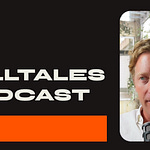The Cashflow Memo
Episode 2413 Summary:
The episode opened by examining the current geopolitical factors impacting global oil supply and demand. The hosts discussed how Russian refinery outages caused by Ukrainian drone attacks have tightened supply, while OPEC's ability to increase production by 3 million barrels per day looms as a bearish threat.
They shifted to the natural gas market, noting forecasts for lower U.S. production in 2024 compared to late 2023. However, rising power demand from data centers and LNG exports could support prices. Climate activists were highlighted as a political risk that could constrain new fossil fuel infrastructure.
The budget deficit projections took center stage next. The hosts expressed cautious optimism that the new spending bills could reduce the deficit to $1.4 trillion in 2024 and 2025, an improvement from prior $1.6-1.8 trillion estimates.
The crux of the discussion focused on the tech giants - Apple, Amazon, Google, and Microsoft - and the increasing antitrust scrutiny they face from U.S. and European regulators. The hosts recounted Microsoft's antitrust battle two decades ago, which resulted in oversight of their product development by the Department of Justice for 10 years. This bureaucratic meddling strangled innovation and led to a decade of dismal 0.3% returns for Microsoft shareholders.
They pondered whether the current antitrust probes could similarly hamstring the tech titans' ability to partner, develop new products, and stay ahead of rivals. Apple's potential deal with Google to use their AI models was analyzed as an example - the hosts debated whether such partnerships would be permitted, and what Apple's alternatives might be.
The geopolitical implications of China pushing its firms to use domestic chips instead of Intel or AMD were examined. While reducing market size hurts semiconductor companies, the hosts warned it could allow China to develop superior technology without U.S. competition.
When comparing U.S. and European antitrust enforcement approaches, the hosts argued the European fines were more aggressive but sometimes punished behavior before new rules existed. The U.S. system aims to expose flaws and build public support for modernizing laws to address current tech realities.
Lastly, the episode covered the healthcare sector. UnitedHealth's practices around favoring its Optum physician network were highlighted as a Department of Justice probe examines potential Medicare overbilling. The company's cyber attack that disrupted care reimbursements was also discussed, with UnitedHealth potentially exploiting the situation to acquire stressed providers.
The hosts deftly analyzed the complex interplay of geopolitics, antitrust, and market forces shaping the energy, technology, and healthcare landscapes. Their sober assessment cut through noise to deliver an unflinching perspective on key investment risks and opportunities.
MSFT 0.00%↑ AAPL 0.00%↑ GOOGL 0.00%↑ AMZN 0.00%↑ TSLA 0.00%↑ UNH 0.00%↑ CVS 0.00%↑ REGN 0.00%↑ BIIB 0.00%↑ LLY 0.00%↑
How did you like this week’s Telltales? Your feedback helps me make this great.
Loved | Great | Good | Meh | Bad | ….. If you liked this post from Telltales, why not share it?
This post and the information herein are intended for informational purposes only. The views expressed herein are the author’s alone and do not constitute an offer to sell, or a recommendation to purchase, or a solicitation of an offer to buy, any security, nor a recommendation for any investment product or service. While certain information contained herein has been obtained from sources believed to be reliable, neither the author nor any of his employers or their affiliates have independently verified this information, and its accuracy and completeness cannot be guaranteed. Accordingly, no representation or warranty, express or implied, is made as to, and no reliance should be placed on, the fairness, accuracy, timeliness or completeness of this information. The author and all employers and their affiliated persons assume no liability for this information and no obligation to update the information or analysis contained herein in the future.












Share this post